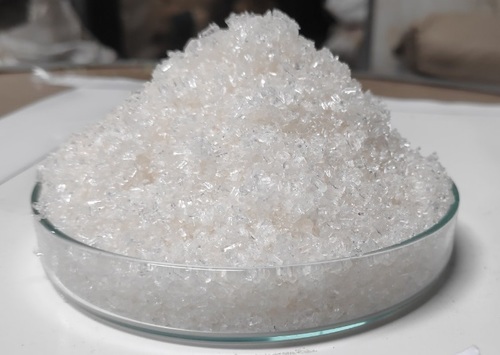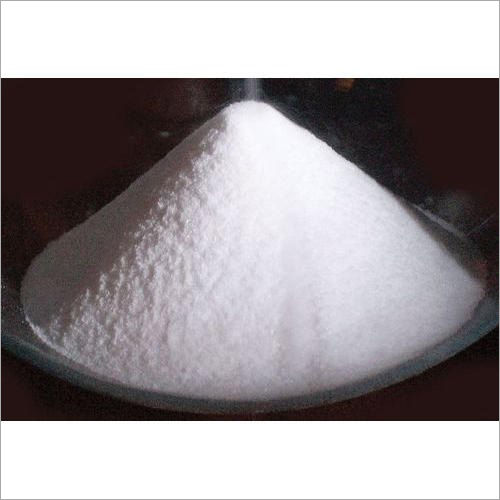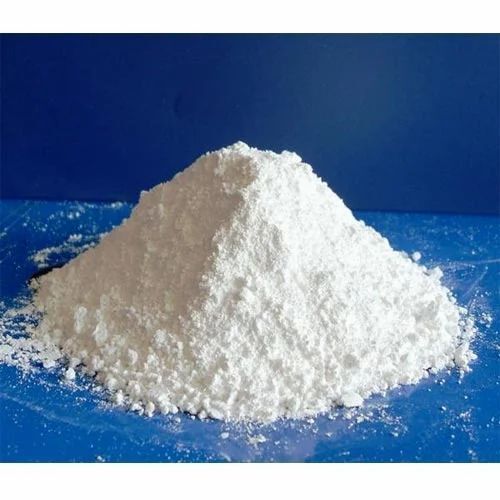Magnesium Sulphate
1000 INR/Kilograms
Product Details:
X
Magnesium Sulphate Price And Quantity
- 20000 Kilograms
- 1000 INR/Kilograms
Magnesium Sulphate Trade Information
- 10000 Kilograms Per Week
- 1 Week
Product Description
Magnesium sulfate, also known as Epsom salt, is a chemical compound composed of magnesium, sulfur, and oxygen, with the chemical formula MgSO4. It is often encountered as the heptahydrate sulfate mineral epsomite (MgSO4 7H2O), commonly known as Epsom salt.
Magnesium Sulphate Properties:
1. Physical State: Magnesium sulfate can exist in various physical states depending on conditions such as temperature and pressure. At room temperature and pressure, it typically exists as a white, crystalline solid. It's also commonly encountered in its heptahydrate form (MgSO4 7H2O), which is a colorless, odorless, crystalline solid commonly known as Epsom salt.
2. Solubility: Magnesium sulfate is highly soluble in water. This high solubility is a key characteristic, making it easy to dissolve in aqueous solutions. The solubility increases with temperature.
3. Melting and Boiling Points: The melting point of anhydrous magnesium sulfate is 1,124 degrees Celsius (2,055 degrees Fahrenheit), while the heptahydrate form melts at around 150 degrees Celsius (302 degrees Fahrenheit) with decomposition. It does not have a distinct boiling point as it decomposes before reaching its boiling point.
4. Hygroscopic: Magnesium sulfate has hygroscopic properties, meaning it readily absorbs moisture from the air. This property makes it useful as a drying agent in certain applications.
5. Acidity: Magnesium sulfate solutions are slightly acidic due to the partial hydrolysis of the sulfate ion. However, the acidity is typically not significant.
6. Reactivity: Magnesium sulfate is relatively stable under normal conditions, but it can react with strong bases to form insoluble magnesium hydroxide. It also reacts with alkali metals to form magnesium sulfides and with strong reducing agents to form hydrogen gas.
7. Medical Properties: In medicine, magnesium sulfate has properties that make it useful in various applications, including as a laxative, as a treatment for magnesium deficiency, and as a medication to prevent seizures in conditions such as eclampsia.
Magnesium Sulphate Applications:
1. Medicine:
a. Laxative: Magnesium sulfate is commonly used as a saline laxative to relieve occasional constipation. It works by drawing water into the intestines, which softens stools and promotes bowel movements.
b. Magnesium Deficiency Treatment: It is used to treat magnesium deficiency in people with poor magnesium intake or absorption.
c. Eclampsia and Pre-eclampsia Treatment: In obstetrics, magnesium sulfate is used intravenously to prevent seizures in women with pre-eclampsia or eclampsia during pregnancy.
d. Cardiovascular Medicine: In some cases, magnesium sulfate is used to treat certain arrhythmias (irregular heartbeats) and as a cardioprotective agent during heart surgery.
e. Topical Applications: Epsom salt baths are often used to soothe sore muscles, alleviate stress, and promote relaxation, although scientific evidence supporting these benefits is limited.
2. Agriculture:
Magnesium sulfate is used as a fertilizer to provide essential nutrients to plants. It supplies magnesium, an important component of chlorophyll, and sulfur, which aids in plant growth and development. It is particularly beneficial for crops that require high levels of magnesium, such as tomatoes, potatoes, and peppers.
3. Industrial Applications:
a. Textile Industry: In textile dyeing processes, magnesium sulfate is used as a mordant, helping to fix dyes to fabrics and improve colorfastness.
Paper Manufacturing: Magnesium sulfate is used in the production of paper and pulp as a bleaching agent and sizing agent.
b. Chemical Industry: It serves as a precursor in various chemical reactions and processes, including the production of magnesium compounds and pharmaceuticals.
c. Fireproofing Materials: In the construction industry, magnesium sulfate is used as a component in fireproofing materials.
d. Desiccant: Due to its hygroscopic properties, magnesium sulfate is employed as a drying agent in laboratories and industrial processes.
4. Cosmetics and Personal Care:
Magnesium sulfate is used in various cosmetic and personal care products, including bath salts, skin exfoliants, and foot soaks, where it is believed to help soften skin and improve circulation.
5. Food and Beverage:
In food and beverage processing, magnesium sulfate is sometimes used as a brewing salt in beer production and as a flavor enhancer and nutrient supplement in food products.
Magnesium Sulphate FAQ:
Q. What is magnesium sulfate?
Ans: Magnesium sulfate, chemical formula MgSO4, is a compound composed of magnesium, sulfur, and oxygen. It is commonly known as Epsom salt.
Q. What are the different forms of magnesium sulfate?
Ans: Magnesium sulfate exists in various forms, including anhydrous magnesium sulfate (MgSO4), which is a white, crystalline solid, and magnesium sulfate heptahydrate (MgSO4 7H2O), commonly known as Epsom salt, which is a hydrated form with seven water molecules per magnesium sulfate molecule.
Q. What are the primary uses of magnesium sulfate?
Ans: Magnesium sulfate has a wide range of applications, including as a saline laxative, a treatment for magnesium deficiency, a medication to prevent seizures in eclampsia and pre-eclampsia, a fertilizer in agriculture, a component in industrial processes such as textile dyeing and paper manufacturing, and in personal care products like bath salts.
Q. How is magnesium sulfate administered medically?
Ans: In medical settings, magnesium sulfate can be administered orally as a laxative, intravenously to treat magnesium deficiency or prevent seizures, or topically in the form of Epsom salt baths for relaxation and muscle relief.
Q. What are the side effects of magnesium sulfate?
Ans: Side effects of magnesium sulfate can include diarrhea, stomach cramps, nausea, and in severe cases, magnesium toxicity, which may cause symptoms such as dizziness, confusion, and irregular heartbeat.
Q. Is magnesium sulfate safe during pregnancy?
Ans: Magnesium sulfate is commonly used during pregnancy to prevent seizures in women with pre-eclampsia or eclampsia. However, it should be used under medical supervision, as excessive doses can lead to magnesium toxicity, which may harm both the mother and the fetus.
Q. Can magnesium sulfate be used in gardening?
Ans: Yes, magnesium sulfate is commonly used as a fertilizer in gardening to provide essential nutrients (magnesium and sulfur) to plants. It is particularly beneficial for crops that require high levels of magnesium, such as tomatoes, peppers, and potatoes.
Q. Can magnesium sulfate be used in cooking?
Ans: While magnesium sulfate is generally recognized as safe for certain culinary uses, it is not commonly used as a food additive. However, it may be used in brewing beer or as a nutrient supplement in certain food products.
Q. Is magnesium sulfate environmentally friendly?
Ans: Magnesium sulfate is generally considered environmentally friendly, as it is biodegradable and does not persist in the environment. However, excessive use as a fertilizer can lead to nutrient runoff and contribute to water pollution.
Tell us about your requirement

Price:
Quantity
Select Unit
- 50
- 100
- 200
- 250
- 500
- 1000+
Additional detail
Mobile number
Email







 Send Inquiry
Send Inquiry Send SMS
Send SMS
